Sailors who transformed World War One prison camp remembered in book
- Published
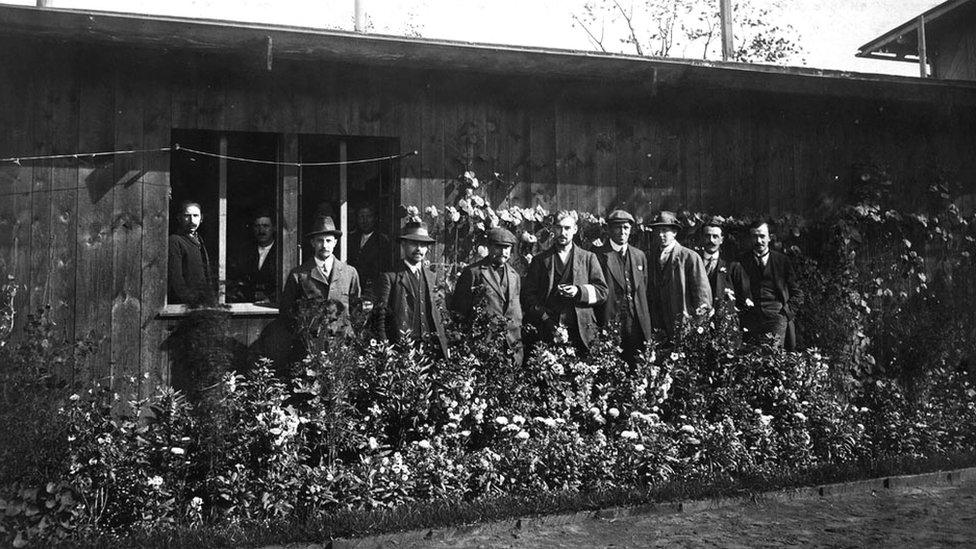
Gardening transformed the war camp experience for the sailors
The little-known story of Aberdeen sailors who helped transform a World War One prison camp with their love of gardening is the focus of a new book.
The crew of the SS Rubislaw spent nearly the entire war at Ruhleben, an abandoned race track near Berlin.
They started growing vegetables and planting flowers, before forming their own horticultural society.
Their wartime experience is marked in the book "A crew that time forgot", written by descendants of two crew.
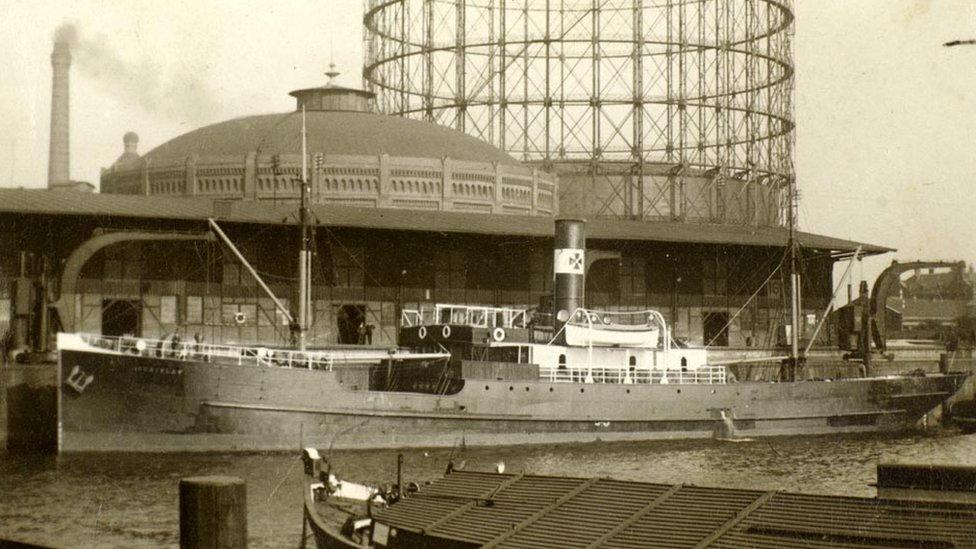
The Rubislaw headed to Germany in 1914
The Rubislaw set sail from Aberdeen on 31 July 1914, bound for the German port of Hamburg.
Four days later, war was declared.
The Rubislaw was impounded and forced to remain in Hamburg harbour.
Poor condition
Margie Mellis, the great granddaughter of crew member Charles Wilson, said: "They were there for a very long time, and then they were taken off the Rubislaw and were taken to abandoned hulks which were in Hamburg harbour.
"They were in a very poor condition. They were rotting, they were rat-infested, dark, and they were given very poor food.''
At the start of the November, the crew of the Rubislaw were moved to Ruhleben, a civilian detention camp on the outskirts of Berlin.
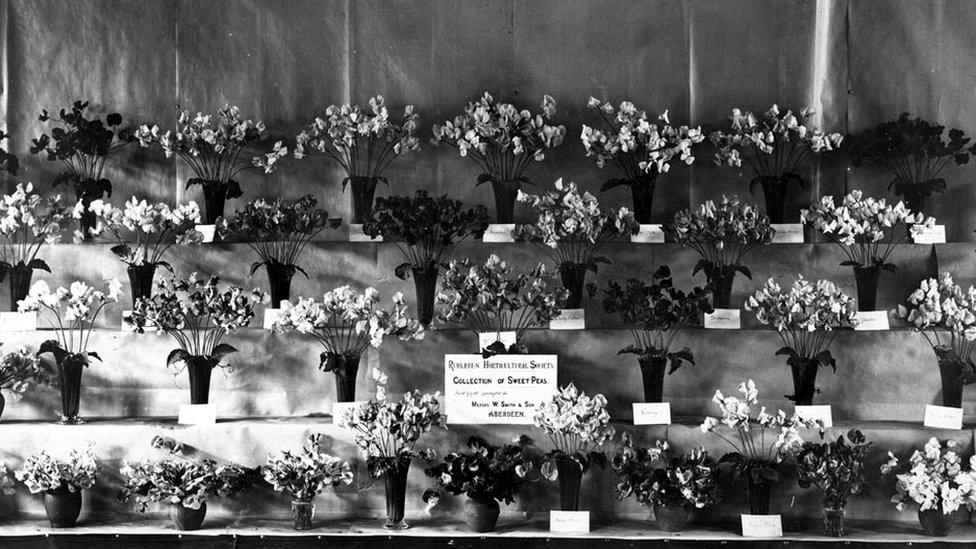
Ruhleben Horticultural Society was formed
Doreen Black's grandfather David McKay Tulloch was the chief engineer on board the Rubislaw.
She said: "The conditions in the camp had been quite severe to start with. He glossed over that a bit, but I do remember him saying how cold he'd been, and how sore his feet had been."
Determined to improve conditions in the camp, some of the men turned to gardening.
In 1916, the Ruhleben Horticultural Society (RuhHS) was formed.
Hide barbed wire
Mrs Black said: ''As a little girl, I just knew of him as my grandpa. I thought everybody's grandfathers had enormous gardens full of fruit, vegetables and flowers.
"It was only as I got older that I realised he'd learned his gardening in the camp.
"Their first task was to decorate the camp, hide the barbed wire, make it more like home, particularly with sweet peas. They ended up growing 83 varieties. It was only later that they applied to join the RHS in London that seeds and tubers were sent out.
"They managed to rent half the internal oval of an old race track. They dug it out by hand, and by the first summer, they were growing 22,000 cabbages, tomatoes - every vegetable you could think of."
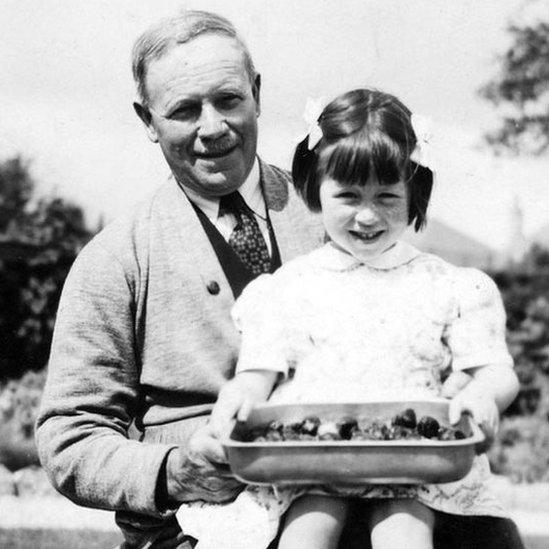
Doreen Black enjoyed the fruits of her grandfather David McKay Tulloch's labours
Most of the men stayed in Ruhleben until the end of the war in 1918.
Mrs Black said: "Perhaps when the men came home and they realised the slaughter that had taken place in the trenches, people may have said to them 'well you were alright'. I think they did feel guilty."
"I think as time went on, they didn't talk about it as much."
Centenary of return
After the war, the SS Rubislaw returned to sea.
However, in November 1939, the ship struck a mine off the coast of England. It sank within minutes.
The launch of the book "A crew that time forgot" marks 100 years since the crew of the Rubislaw returned home from Ruhleben.
Mrs Mellis added: "It's a local story, it's a story about Aberdeen men, it's a story about the First World War. It's probably not one many people know about."
It is hoped the book helps plant the seed to find more descendants of the crew of the SS Rubislaw.
- Published25 August 2014
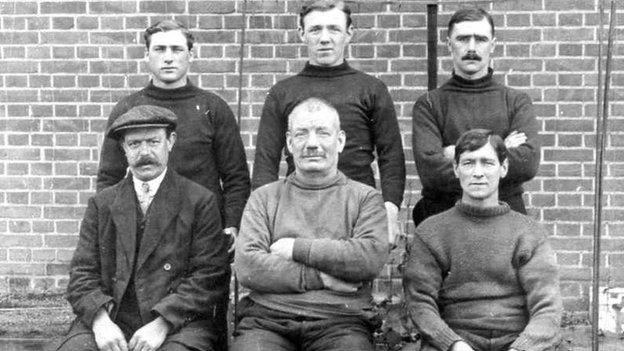
- Published29 July 2014
